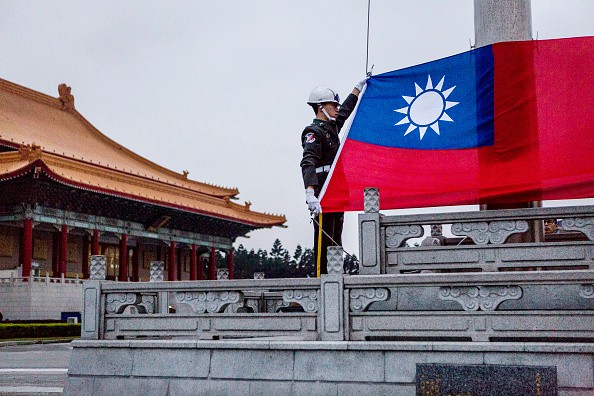An unknown motorcyclist threw petrol bombs at the headquarters of the ruling Kuomintang Party (KMT) in Taipei early Sunday morning, the day marking the anniversary of a deadly government crackdown in Taiwan nearly 70 years ago.
The protester also flung flyers holding the KMT and the United States accountable for the 228 Incident, which saw riots erupting across Taiwan on Feb. 28, 1947 that left thousands of people dead, and demanding that the KMT return its ill-gotten assets to Taiwanese citizens, according to a China Post report on Monday.
The attempted arson attack, which occurred at around 3:50 a.m. and was quickly extinguished by security guards, drew widespread criticism and calls for social harmony in the country.
Those who hate the party should stop "using historical wounds to create stand-offs and divisions," the KMT's acting chairperson Huang Min-hui told the press after the attacks.
On Sunday, Taiwan's President Ma Ying-jeou said the people have already suffered much in the past, adding that the pains of history should be soothed and that peace and love should fill the land.
Taiwan has seen an uptick in protests coinciding with the 228 Incident. On Friday, students at National Chengchi University plastered a statue of Taiwanese political leader Chiang Kai-shek with fliers listing the names of the victims of the crackdown. Statues of Chiang were also defaced in Yilan, Nantou and Miaoli counties, according to the Taipei Times on Monday.
Lin Yih-hua, director of the KMT's Department of Culture and Communications, expressed concern that the radical way of expressing views might incite "hatred and stand-offs" in Taiwan, which already enjoys freedom of expression and ethnic harmony.
Lin added that the KMT and the outgoing administration of President Ma Ying-jeou, which is set to be replaced by President-elect Tsai Ing-wen in May, have made great strides over the years "to heal the wounds and proactively promote reconciliation among ethnic groups" across Taiwan.



























